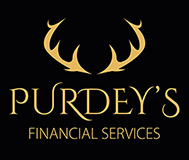One of the biggest decisions you face when choosing a mortgage is should you go for a fixed or variable rate mortgage and its a question we get asked a lot! Understanding the key features of a fixed rate mortgage and a variable mortgage can be fairly straightforward, but deciding between the two and picking one that saves you money is much trickier. A mortgage is a big commitment, and knowing the difference between the available mortgages, as well as the pros and cons of each will help you choose the right product for your circumstances.
Fixed Rate
The main benefit of a fixed rate mortgage is the certainty. The monthly mortgage payments will always be the same for the length of the product, regardless of interest rate movements, however, you will usually have to pay an early repayment charge (ERC) if you leave the product early. Discounted variable rates fluctuate depending on the wider economic and financial market. The fixed rate can range from as little as two years to as long as 10 years, or perhaps even more, depending on the lender and the product you go for.
Pros and Cons of Fixed Rate
Pros
– Easy to budget for (monthly payments are always the same)
– Good for long-term homeowners
– Signing up for a long-term fixed rate mortgage might also appeal if you want to avoid the potential costs associated with remortgaging every couple of years.
Cons
– It’s impossible to predict when interest rates will go up or down. With a fixed-rate mortgage, you run the risk of missing out on cheaper deals should rates fall during the fixed term of your deal.
– Fixed rate mortgages lock you in for the term, and that means you should be planning to stay in your new property for at least as long as the fixed rate period on your mortgage.
– Could be a larger arrangement fee depending on broker/deal.
Variable Rate
With a variable rate mortgage, the interest rate can change over time. In some cases you may have a tracker mortgage, where the interest rate on your mortgage follows changes in the base rate set by the Bank of England. As a result, if the bank base rate goes up, so too will the interest rate on your mortgage, meaning your monthly repayment will rise as well. However, if the base rate falls, your interest rate will go down, and your monthly mortgage bill will shrink as well.
Pros and Cons of Variable Rate
Pros
– Loan repayments decrease when interest rates fall.
– Loans typically get better upfront perks like low introductory rates for an initial loan period.
– May be able to reduce the total mortgage payments if the rate remains low for a substantial period of time compared to a fixed rate mortgage.
Cons
– You may stand to pay more if rates rise as lenders can change a variable interest rate at any time.
– Payments fluctuate after the introductory period. Homeowners must adjust their monthly household budget as their mortgage payments increase and decrease.
Conclusion
Which type of mortgage is best suited to you will depend on your financial situation and how much risk you’re willing and able to take. If you simply cannot afford the risk of your mortgage repayments going above a certain amount, a fixed rate mortgage will give you this security. But if your finances allow for the chance that your mortgage repayments might rise, a competitive variable rate mortgage might allow you to take advantage of lower interest rates initially, and offer the potential for your payments to fall.
For further information on whether you should go for a fixed or variable rate mortgage, please contact us here.




